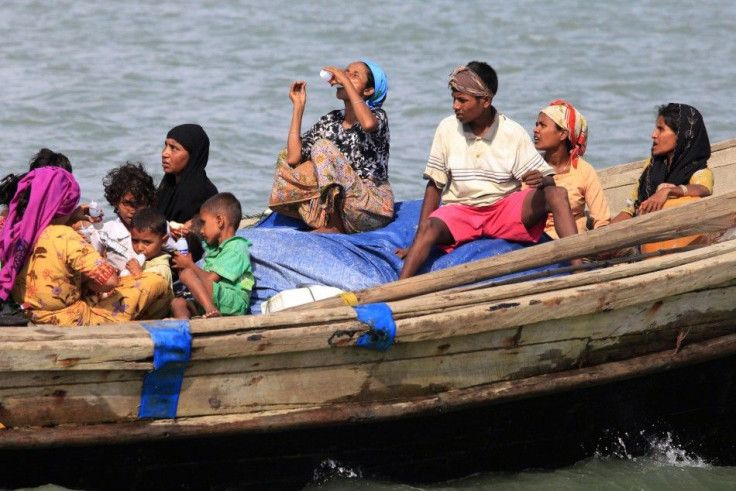Burma’s Rohingya: A New Lightning Rod For Islamic Militants?

The persecuted Rohingya minority of Myanmar (Burma) may have found a formidable ally -- the Pakistan Taliban has warned the Islamabad government that it must cut diplomatic ties with the southeast Asian country over its treatment of fellow Muslims.
Violence clashes in the western province of Rakhine between Muslim Rohinyga and Buddhist Burmese has killed dozens of people while displacing thousands. Untold thousands of Rohingya have fled to neighboring Bangladesh, while many thousands more were rejected entry into the country and remain trapped in limbo in Burma.
Burmese government officials regard the Rohingya as “illegal immigrants” from Bangladesh and deny them basic human rights. The United Nations has characterized the stateless Rohingya as among the most persecuted people on earth.
But two thousand miles to the west, Pakistani militants have vowed revenge for the Burmese attacks on Muslims.
Ehsanullah Ehsan, a spokesman for Tehreek-e-Taliban Pakistan (TTP) said on Thursday: "We warn [the] Pakistani government to halt all relations with [the] Burmese government and close down their embassy in Islamabad otherwise we will not only attack the Burmese interests anywhere but will also attack the Pakistani fellows of Burma one by one… We want to remind our Muslims in Burma that we haven't forgotten you, we will take revenge of your blood."
Ehsan added: "We appeal to [the] media especially who call themselves representative of Muslims to broadcast the real situation in Burma and what's happening to Burmese Muslims… Taliban are with the Burmese Muslim brethren.”
TTP, which is reportedly closely linked to al-Qaeda, has frequently launched attacks on Pakistan government targets and security forces, but its ability to carry out violence abroad is doubtful.
However, Pakistan’s government has not turned a blind eye to the plight of the Rohingya.
"Pakistan hopes that [the] government of Burma would take effective measures to overcome the deteriorating law and order situation," said a spokesman for the Islamabad government, according to the Daily Telegraph newspaper of Britain.
The persecution of Rohinyga has sparked fury from other Islamic militant groups across South Asia and the Middle East as well, sparking fears of a spillover or sectarian violence across the vast region.
On July 23, the Hezbollah of Lebanon declared: "The regime-owned killing machine relentlessly works on striking Muslims in different regions; with Rohingya at the forefront... This is a new racial purification trend against Muslims."
Three days before that, the Afghan Taliban said in a florid statement: “The Muslims of [Myanmar] have been facing such oppression and savagery for the past two months never previously witnessed in the history of mankind. Mercilessly burning children, women and men like toasting sheep on fire is not only against every known law but something no man with any conscious can ever accept but unfortunately the Muslims of [Myanmar] are targets of such a gross crime. Not only that, but they are also being expelled from their lands, forcefully ejected from their homes, their wealth is being usurped and their honor looted while the whole world turns a blind eye to their plight.”
The Taliban statement concluded: “[We call] on the government of [Myanmar] to immediately put a stop to this savagery and barbarism and halt such heart rending historical violations against humans and humanity. They should realize that this is not only a crime against the Muslims of [Myanmar] but against all humankind and especially an unforgivable crime against the entire Muslim world.”
The violence in western Burma has already been repeated in the northeastern part of India, where local Assamese have clashed with Muslim immigrants from Bangladesh. Government officials from India to Burma are likely fearful that radical Islamic groups may exploit the Rohingya situation for their own ends.
© Copyright IBTimes 2024. All rights reserved.











